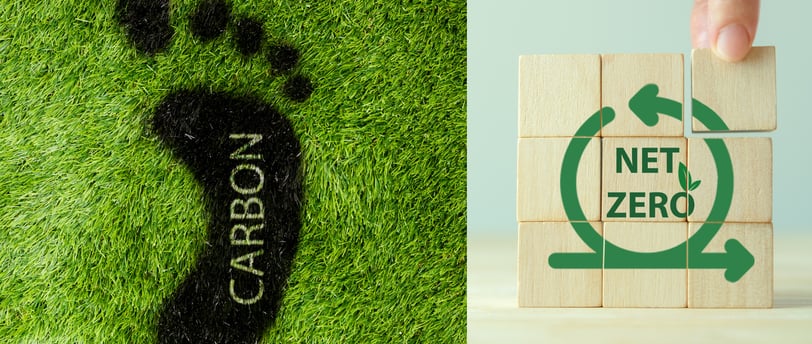How Sustainable Metal Recycling Can Boost Your Business’s Bottom Line
Learn how sustainable metal recycling can cut costs, improve efficiency, and boost your business’s reputation while supporting the circular economy.
12/11/20243 min read


In today's rapidly evolving business landscape, companies are increasingly looking for ways to reduce costs, enhance operational efficiency, and build a positive reputation. One powerful strategy that not only supports these goals but also contributes to a healthier planet is sustainable metal recycling. By embracing sustainable metal recycling, businesses can tap into numerous financial and environmental benefits, driving long-term profitability while supporting the circular economy.
The Financial Benefits of Sustainable Metal Recycling
Sustainable metal recycling offers an array of cost-saving opportunities that directly impact a business’s bottom line. Here’s how:
Reduced Raw Material Costs One of the most significant expenses for many industries, particularly in manufacturing, is the cost of raw materials. By incorporating recycled metals into your production processes, you can drastically reduce the need for new materials. Since recycled metals like steel, aluminum, and copper often cost less than their virgin counterparts, businesses can lower procurement costs, creating a more efficient supply chain.
Energy Savings The energy required to extract and process raw metals is substantial. Recycling metals, on the other hand, uses a fraction of the energy. For instance, recycling aluminum saves up to 95% of the energy compared to producing new aluminum. For companies that consume large quantities of metal, these energy savings can be significant, lowering operational costs and reducing energy bills.
Tax Incentives and Grants Many governments offer incentives for businesses that incorporate sustainable practices, including recycling. These can range from tax breaks to direct financial support for sustainability initiatives. By investing in sustainable metal recycling, companies can access these incentives, further improving their financial outlook.
Resource Efficiency and Waste Reduction
Incorporating sustainable metal recycling into your business practices isn't just about reducing costs—it’s also about maximizing resource efficiency.
Reducing Waste Sent to Landfills By recycling metals, you prevent valuable materials from ending up in landfills. This not only reduces waste disposal costs but also contributes to a cleaner environment. Businesses that prioritize recycling can significantly cut down on their waste management expenses while supporting sustainable waste practices.
Long-Term Availability of Materials Metal is a finite resource, but recycling helps maintain a steady supply. As the demand for raw materials continues to grow, businesses that rely on metal products can future-proof their supply chains by securing a consistent source of recycled materials. This reduces the risk of price volatility and material shortages, ensuring long-term business continuity.
Enhancing Your Business Reputation
Today’s consumers and business partners are increasingly valuing sustainability, and sustainable metal recycling plays a key role in a company’s environmental responsibility. Here’s how this can directly benefit your business:
Building Trust with Eco-Conscious Customers Consumers today are more informed and socially conscious than ever before. By integrating sustainable practices such as metal recycling, your business can attract and retain customers who prioritize environmental sustainability. This commitment not only enhances your reputation but also helps you stand out in a crowded marketplace.
Attracting Partnerships with Like-Minded Companies In an age where corporate social responsibility (CSR) is highly valued, businesses that embrace the circular economy and adopt sustainable practices are more likely to attract partnerships with other eco-conscious companies. These collaborations can open up new business opportunities, expand your network, and provide access to new markets.
Meeting Regulatory Requirements Governments around the world are tightening regulations around waste management and sustainability. By adopting sustainable metal recycling, businesses can stay ahead of these regulatory changes, ensuring compliance while avoiding potential fines or penalties. This proactive approach can give your business a competitive edge in industries where regulations are becoming increasingly strict.
Sustainable Metal Recycling and the Circular Economy
At the heart of sustainable metal recycling is the circular economy—a system that aims to eliminate waste and make the most of available resources. In a circular economy, products and materials are continually reused, refurbished, and recycled, creating a sustainable, closed-loop system.
By participating in this cycle, your business not only benefits financially but also contributes to a more sustainable future. Sustainable recycling practices support the movement towards a circular economy, where the need for raw materials is reduced, waste is minimized, and the environmental impact of production is significantly decreased.
Conclusion
Embracing sustainable metal recycling is a smart business decision that offers both financial and environmental benefits. From cost savings on raw materials and energy bills to enhancing your reputation in the market, the advantages of recycling metals are undeniable. As more businesses shift towards sustainable practices and the circular economy, those who prioritize recycling will not only be ahead of the curve—they’ll be driving the change towards a more sustainable, profitable future.
So, whether you’re looking to boost business by reducing costs, improving operational efficiency, or enhancing your brand reputation, sustainable metal recycling is a powerful tool in your business’s sustainability toolkit. It’s time to make recycling a priority—and watch your business thrive while helping the planet do the same.
